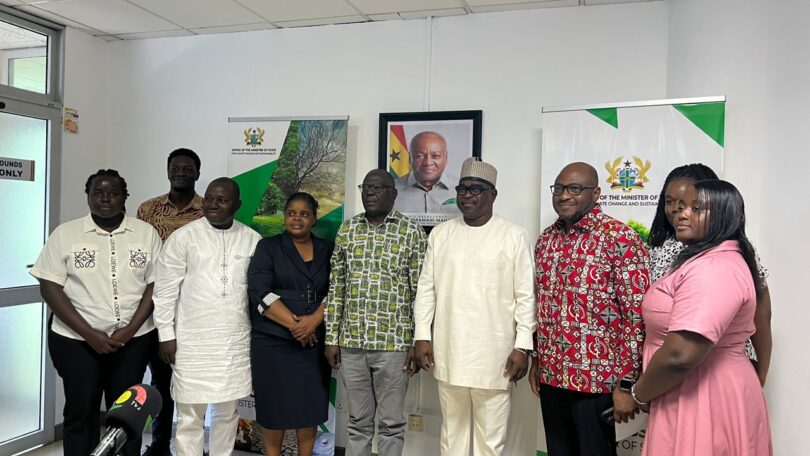Report By: Ishmael Barfi
Ghana’s Minister of State for Climate Change and Sustainability, Hon. Issifu Seidu has made a compelling case for a climate debt-forgiveness mechanism to support vulnerable African countries in building long-term resilience against climate change.
During an engagement with AGNES ON Friday, 11th July, 2025, the minister emphasized the necessity of addressing the financial burdens that hinder African nations from effectively responding to environmental challenges.
The call for debt forgiveness stems from the understanding that unsustainable debt obligations prevent African countries from investing in climate resilience and sustainability initiatives.
“As the African Group of Negotiators, we need to incorporate this into our discussions. We must advocate for a climate debt-forgiveness mechanism for vulnerable African nations. Every year, funds are allocated to African countries, but proposals are required to access these funds,” he stated.
“We need to find a way to build internal resilience. This can only be achieved if these debts are forgiven, allowing the funds that would otherwise service debt to be redirected towards adaptation and internal resilience-building in response to climate change. The African Group of Negotiators must commit to this.”
The Minister emphasized the need for the international community to collaborate in supporting African countries with their climate action initiatives.
He stated that climate finance mechanisms, including green bonds and concessional finance, are essential for providing crucial support to these countries.
Additionally, developing climate resilience necessitates a sustained commitment to assisting vulnerable nations in their efforts to adapt to climate change.
Dr. George Wamukoya, the Team Lead of AGNES, welcomed the minister’s call for debt forgiveness, describing it as a crucial step towards building climate resilience in Africa.
“As AGNES, we are dedicated to supporting African climate negotiators and experts in developing effective climate policies and programs. We believe that debt forgiveness can play a vital role in enabling African countries to invest in climate resilience initiatives, thereby reducing their vulnerability to climate-related disasters,” he stated.
He strongly believes that forgiving debts would allow African countries to redirect resources towards adaptation and building internal resilience, ultimately mitigating the impact of climate change on their economies and communities.








